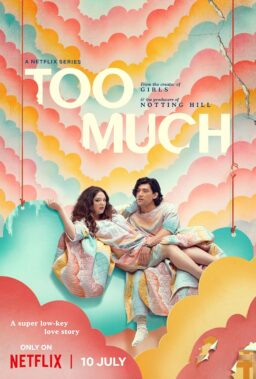Q. In the movie “Cast Away,” Tom Hanks leaves on his assignment overseas before the plane crashes. When he says goodbye to Helen Hunt on the tarmac, they trade Christmas presents in his Jeep. He walks away and returns with a gold wrapped box, which they are supposed to open together on New Year’s Eve. The plane crashes, four years later he returns from the island, and she gives him his Jeep back. There was no mention of the little gold box or a possible engagement ring that might have been in the box. Was that scene filmed or edited out, and if it was filmed, might we see it on a future CD? (Dom Najolia, Chicago)
A. If it did indeed contain an engagement ring, you’d suppose they’d both remember it. But a 20th Century-Fox rep says such a scene was never written in the script to begin with, so it was not filmed and edited, nor will it be on the DVD version.
Q. Bruce Willis likes to make movies with numbers in the titles. His first movie role was “The First Deadly Sin” (1980), in which he was uncredited. He was in “Loaded Weapon 1,” “Die Hard 2: Die Harder,” “Look Who’s Talking Too” (2?), “Die Hard 3,” “Four Rooms,” “The Fifth Element,” “The Sixth Sense,” “The Whole Nine Yards,” and “12 Monkeys.” (Scott Honea, Corsicana TX)
A. I think you should also give him the benefit of the doubt on “Last Man Standing.”
Q. I go to you for insightful commentary and enlightening criticism about films. Who amongst your peers do you go to? (Fred Duong, Garland TX)
A. The most valuable film critic in America is Stanley Kauffmann of The New Republic. I appreciate many of my colleagues for their wit, intelligence, insight and language, but Kauffmann is the one I turn to with the thought that, if we disagree, I may very well be wrong.
Q. Why do I not see Stanley Kubrick’s name anywhere in the ad for Steven Spielberg‘s upcoming film “A.I. Artificial Intelligence?” Didn’t Kubrick already write the screenplay for the movie, and was only waiting for technology to improve before he made it? I’ve heard rumors of Kubrick sending Spielberg pages and pages of story ideas for “A.I.”, so shouldn’t he be given at least some credit for the film? (Ken Berglund, Long Beach, CA)
A. Kubrick did not write the screenplay, although he worked long and hard in preparing the picture. The screen credits will be for a Spielberg screenplay, based on a screen story by Ian Watson and a story by Brian Aldiss. To emphasize Kubrick’s name would be an unseemly use of his reputation, although it is likely Spielberg will reference him in some way, perhaps in a dedication. You are correct that Kubrick and Spielberg had long talks about the movie, and that Kubrick shelved it because he felt it needed special effects that were not available when he began preparing the project.











